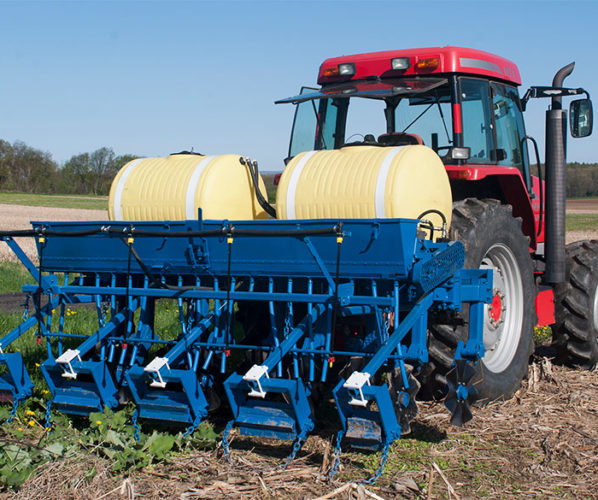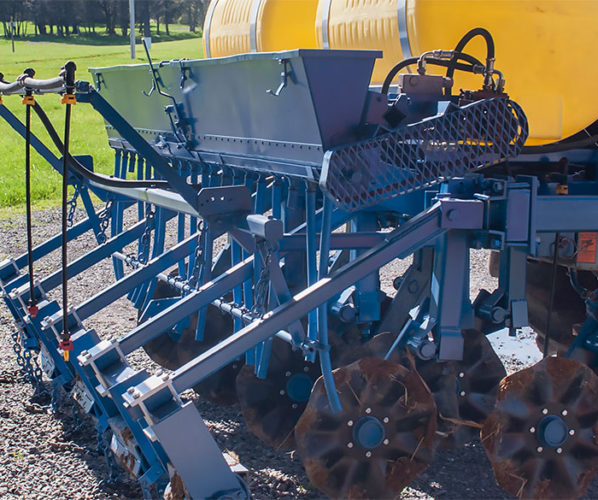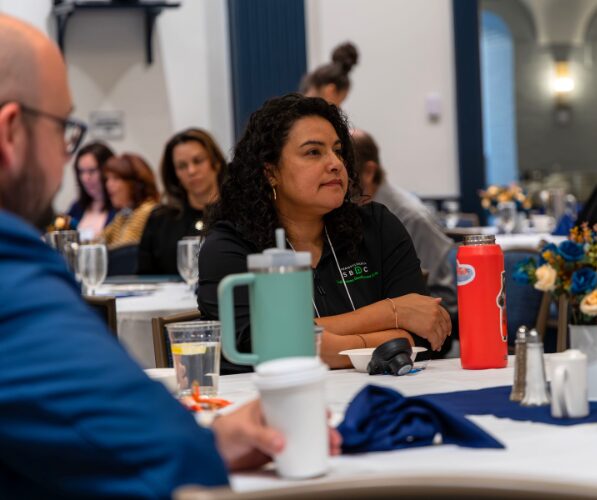Success Story
“I can see the wisdom of having students, faculty and staff become involved in commercializing technology transfer in a partnership with the university.”
Greg Roth
Professor of Agronomy, The Pennsylvania State University
Interseeder Brings Growth Solutions to Farming
After finding an innovative solution to a farming challenge, a team of researchers launches a business – and sales are taking off.
A piece of machinery developed by researchers in Penn State’s College of Agricultural Sciences is starting to achieve commercial success, the latest example of technology transfer spurred by the college’s Entrepreneurship and Innovation initiative.
The Interseeder was the brainchild of agronomists who wanted to help farmers adopt cover crops into crop rotations in a profitable and reliable way.
Greg Roth, professor of agronomy, Chris Houser, Penn State Extension educator, William Curran, professor of weed science, and Corey Dillon, a Penn State farm operations technician and graduate student, developed a piece of equipment that could plant cover crop seeds — and at the same time spray herbicide and apply fertilizer to help establish the cover crop.
After applying for patents on the device, the team licensed the technology from the University and started a company called Interseeder Technologies to commercialize their idea.
Thanks to a grant from the College of Agricultural Sciences, and another from the U.S. Department of Agriculture, the Penn State Interseeder has taken the next step. “We started a campaign,” he said. “We have machines operating now in this state, as well as in Maine, Minnesota, Vermont and New York.”
Their early success is a tangible result of the University’s emphasis on bringing new technologies to the marketplace, according to Gary Thompson, associate dean for research and graduate education at the College of Agricultural Sciences.
“The college has taken a leading role in University-wide efforts to promote entrepreneurship,” Thompson said. “The goal is to support economic development and job creation and to provide a robust return on the investment that taxpayers and others make in Penn State research and educational programs.”
For his part, Roth agrees, “It is kind of a neat concept, coming up with a Pennsylvania idea, manufacturing it in Pennsylvania, benefiting Pennsylvania farms and farmers and then providing some funding back to the college through licensing of the technology,” he said. “… I can see the wisdom of having students, faculty and staff become involved in commercializing technology transfer in a partnership with the university.”
— Adapted from a story by Jeff Mulhollem







